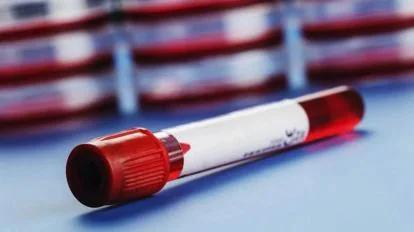
Never-seen-before Blood Group Found in Indian Woman
In a breakthrough discovery, a 38-year-old woman from Kolar, Karnataka, has been found to have a blood group that has never been reported before. The woman’s blood group was initially identified as O+, but when she required surgery, her blood was found to be incompatible with the available units. Further tests revealed that she has a unique blood group antigen in the Cromer system, which has been named CRIB, representing Cromer, India, and Bengaluru.
The discovery of this new blood group has significant implications for the medical community, particularly in the context of blood transfusions. Blood transfusions are a common medical procedure that involves transferring blood from a donor to a patient to replace lost blood volume or to treat certain medical conditions. However, ensuring compatibility between the donor’s and recipient’s blood is crucial to prevent adverse reactions. The discovery of this new blood group highlights the importance of continuous monitoring and refinement of blood typing systems.
The CRIB antigen is a unique combination of antigens in the Cromer system, which is a group of antigens that are present on the surface of red blood cells. The Cromer system is a relatively rare blood group system, and the CRIB antigen is not found in any other individual or population. The discovery of this new blood group antigen is a significant breakthrough in the field of transfusion medicine, and it has the potential to revolutionize the way blood is typed and transfused.
The woman who was found to have the CRIB antigen was admitted to a hospital in Bengaluru for surgery. During the pre-operative screening, her blood was tested for compatibility with the available blood units. However, the tests revealed that her blood was incompatible with the available units, which raised concerns about the potential risks and complications associated with blood transfusion. Further testing was conducted to determine the cause of the incompatibility, which led to the discovery of the CRIB antigen.
The discovery of the CRIB antigen is a significant achievement for the medical community, particularly in India. India has a large population, and the demand for blood transfusions is increasing rapidly. The discovery of this new blood group antigen has the potential to improve the safety and efficacy of blood transfusions in the country. It also highlights the importance of continuous monitoring and refinement of blood typing systems to ensure compatibility between donor and recipient blood.
The discovery of the CRIB antigen also has implications for the global medical community. The Cromer system is a relatively rare blood group system, and the CRIB antigen is not found in any other individual or population. This means that the discovery of this new blood group antigen has the potential to improve the accuracy and reliability of blood typing systems globally.
The discovery of the CRIB antigen is also a testament to the importance of advances in medical technology and research. The development of new diagnostic tests and technologies has enabled the detection of new blood group antigens and improved the accuracy and reliability of blood typing systems. The discovery of the CRIB antigen highlights the importance of continued investment in medical research and the development of new technologies to improve healthcare outcomes.
In conclusion, the discovery of the CRIB antigen in a 38-year-old woman from Kolar, Karnataka, is a significant breakthrough in the field of transfusion medicine. The new blood group antigen has the potential to improve the safety and efficacy of blood transfusions in India and globally. The discovery highlights the importance of continuous monitoring and refinement of blood typing systems to ensure compatibility between donor and recipient blood. It also underscores the importance of advances in medical technology and research in improving healthcare outcomes.
Source:






